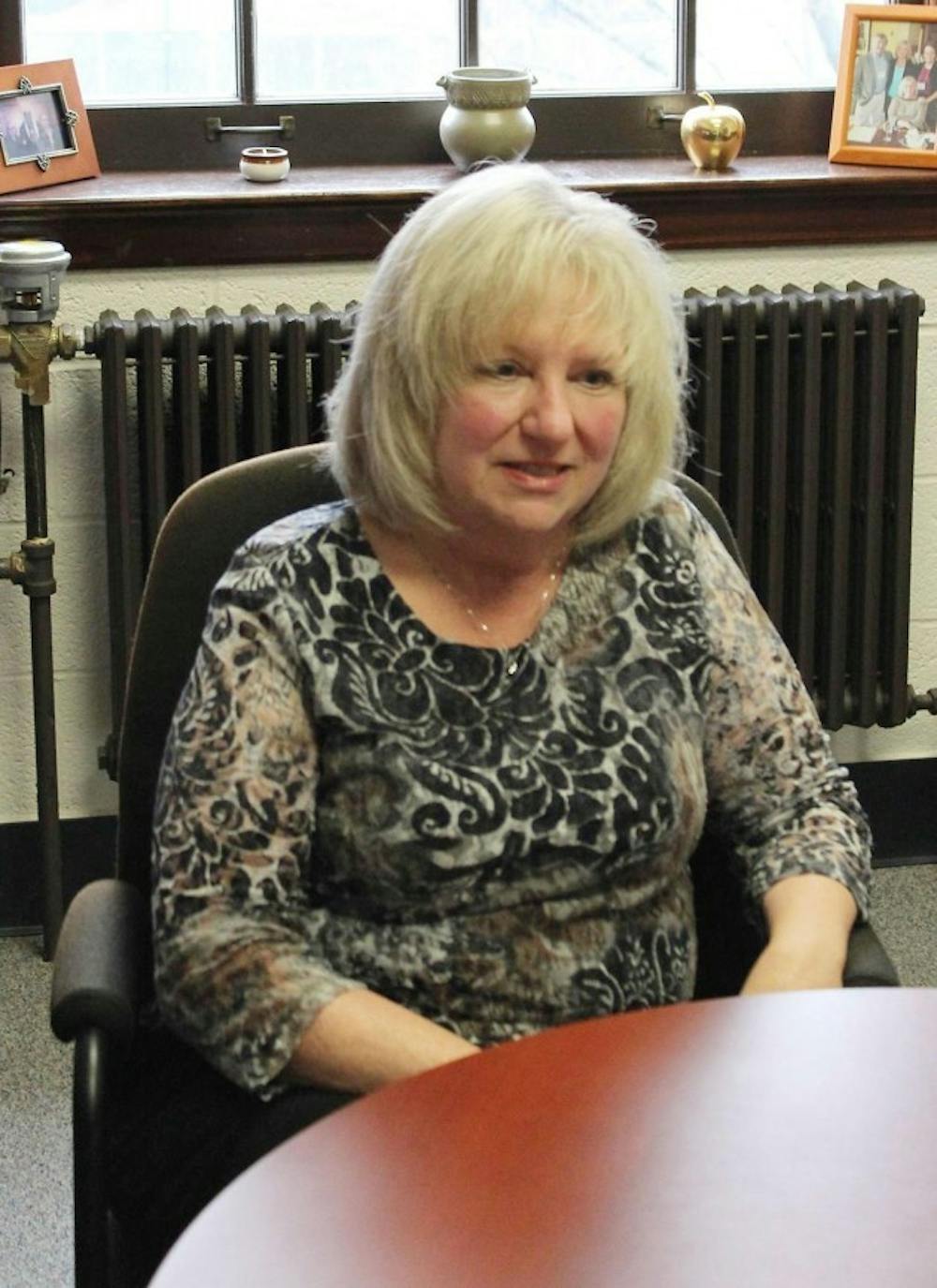A young Catherine Dulmus stood behind the counter of Buffalo's local Salvation Army when a family of four walked in. They were desperate for food and shelter and reached out to Dulmus for help. Dulmus provided them with what she could - packaged food and blankets.
Dulmus is a professor and associate dean for research at the UB School of Social Work. After a decade of real-world application and practice, she decided to take what she learned in the field and give it back to the profession. She wants to create a positive influence for the next generation of social workers by teaching them what they can do to help make a change. As a social worker, Dulmus goes out into the streets to better the community and lend a helping hand wherever she can.
"It's very rewarding to work with people on the other end," Dulmus said. "People very often fall between the cracks, and the social workers do what they can to be their safety net and provide them with their basic needs."
Besides assisting people face to face, Dulmus spent a fair amount of time working in a mental health facility. An aspect of the field of social work focuses on helping people of all ages who have a mental illness.
"The experience really broadened my understanding of human behavior," Dulmus said. "It's unsettling to see people at severe levels of mental sickness, but it's also equally rewarding to see the progress people make when they are able to come out of that psychosis."
Dulmus and Bruce Nisbet, a lecturer in the UB School of Social Work, recently co-wrote and published a book titled Person-Centered Recovery Planner for Adults with Serious Mental Illness. Nisbet has experience working in centers where children and adults are facing mental illnesses.
"Working closely with youth and their families showed how profoundly people are affected by their own environment and experiences," Nisbet said. "It's important to help make a difference so people can overcome obstacles, move forward and have a better quality of life."
Both Dulmus and Nisbet have seen some of the community's toughest problems.
After working directly in the field of social work for over 10 years, they each pointed out aspects they'd like to change - the first being the low pay scale, which is due to the status social workers have in today's job market, according to Dulmus.
This is disturbing to her because of the wide variety of serious problems social workers in the community face and work hard to mend, such as domestic abuse and drug addiction. She said these problems aren't easy to face.
She hopes to improve the future of the field of social work by encouraging others to enter the field and attack these pre-existing challenges head on.
"If we can recruit the best and brightest minds, we can move closer to finding a solution for some of these problems." Dulmus said.
To help recruit those minds, UB offers a community action course that, according to Nisbet, teaches people how to really mobilize and work with communities. Nisbet was able to apply the principles learned in that course to get the different tools and perspectives he needed to reach his own success.
He had an outstanding experience with the program.
Nisbet has been working in the field of social work for over 30 years. He graduated from UB in 1974.
"If I could pass on any advice, it would be to urge students to embrace other kinds of paths associated with social work," Nisbet said. "We need people to challenge themselves and face some of the more difficult issues involving children and families in order to make a difference. It's not all about therapy and private practice and students need to know that."
It took Nancy Smyth, dean of the School of Social Work, years of experience to realize what being a social worker truly entails. She started out as a psychologist but eventually changed her mind.
"It seemed to me that people with their Master's degree in social work were doing the actual work that made a difference in peoples lives," Smyth said. "Social workers seem to be helping make the system meet people's needs and redesigning the system for the better."
Smyth said she has worked with people who have encountered incredible pain and difficult obstacles in their lives. But in the end, it's worth it for the difference she knows she can make.
"Being able to witness and talk through someone else's pain can help them make it to the other side," Smyth said. "Social work has a very strong tradition of social justice and political action that you don't really see until you actually get out there in the field."
Dulmus and the UB School of Social Work seek to prepare as many students as possible to get out there.
Email: features@ubspectrum.com





